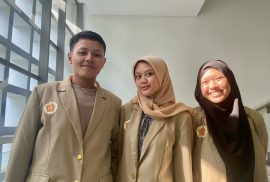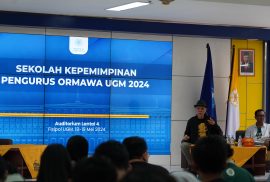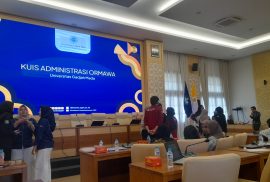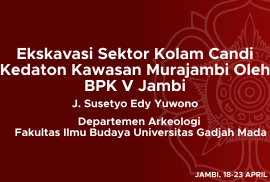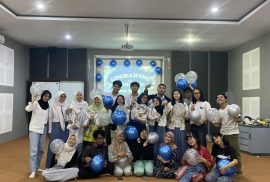On Monday, June 3, 2024, Public Relations of Faculty of Cultural Sciences UGM had the opportunity to interview one of the students of Faculty of Cultural Sciecnes UGM, Haybah Shabira, who successfully passed the Semifinal selection of Student Debate League organized by PT IDN Media on May 31, 2024. The Student Debate League competition was held to celebrate the tenth anniversary of PT IDN Times as well as an initiative to encourage students’ ability to think critically and express their opinions and aspirations as a young generation. The competition invited a number of universities such as Diponegoro University, Syarif Hidayatullah State Islamic University Jakarta, Telkom University, Sepuluh Nopember Institute of Technology, Mataram University, Bogor Agricultural University, Padjajaran University, and others, to participate in the debate competition.
As a student of Archaeology UGM Class of 2023 from Aceh, Haybah has been involved in the world of competitive debate since the beginning of the first semester through participating in the Gadjah Mada Debating Society (GMDS) UGM and has participated in various English debate and Indonesian debate competitions. At the Student Debate League competition, he was initially interested in registering for the competition, but because the quota of representatives from the debate organization he joined was filled early, he was unable to register directly. Fortunately, one of the representatives withdrew and Haybah immediately took her place to have the opportunity to run as a representative.
As one of the representatives of the GMDS UGM organization, Haybah joined a team consisting of two different faculty students Nawfal Aulia Luthfurrahman from the Faculty of Economics and Business Class of 2023 and Meira Davina Jasmine from the Faculty of Law Class of 2023. Despite being from different faculties, they were still excited to compete together.
During the competition, they conducted research on debate motions that had been used in previous debate competitions as a learning reference. After conducting research, they will compile arguments and divide their respective work roles such as the role of the first speaker who presents the basic direction of the debate, followed by the next speaker who presents problem identification, and the last speaker who provides a solution presentation.
“So, we have a solid and clear structure for our debate and until the preparation for the final, nothing has changed, except maybe coaching from our seniors at GMDS UGM,” said Haybah explaining the preparation for the final stage.
With the final stage held on Thursday, June 6, 2024, at IDN Media Headquarters, DKI Jakarta, Haybah and members of the Student Debate League team are now representing Gadjah Mada University to compete with Bogor Agricultural University.
“I want to prove that, you know, the result of UGM’s upbringing and make UGM proud and inspire my friends, especially from my neighborhood in Aceh to encourage the courage of my friends that if you lose it’s okay, because you will reach the level that you are capable enough to reach that level.” Haybah answered about her hopes and enthusiasm to share inspiration for her friends and students to dare to try to jump into the competition.

